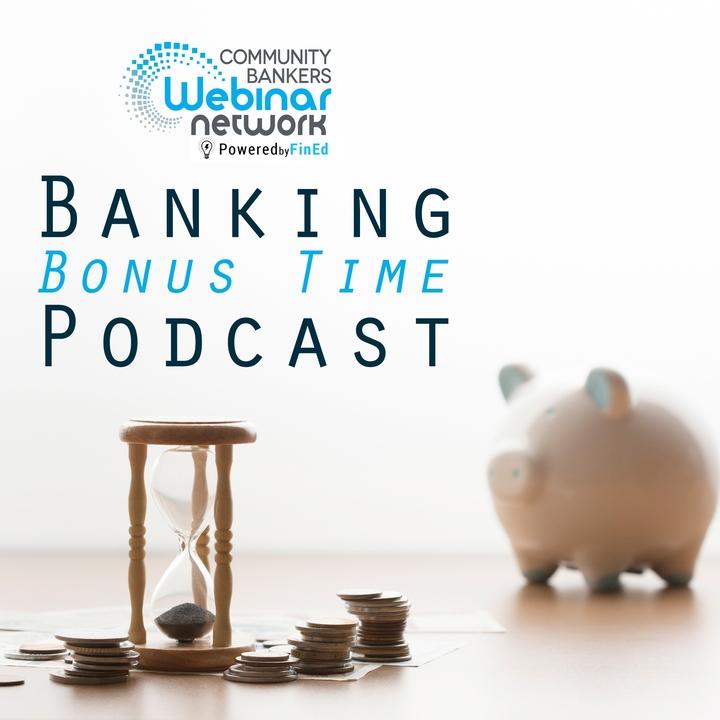
Mortgage Bankers Association Prediction on CRE Loan Volume Q&A with David Reed
Mortgage Bankers Association Prediction on CRE Loan Volume Q&A with David Reed
CEO and former financial institution executive, Larry Williams, chats with attorney and compliance expert, David Reed, about a recent prediction made by the Mortgage Bankers Association concerning commercial real estate lending.
Tumbling occupancy, rising interest rates, and concentrations in CRE loans may spell trouble for many community financial institutions. Learn about the risks your credit union may be facing in these areas, as well as how recent events are influencing CRE values and loan volume across the country.
After the podcast, be sure to check out David’s webinar, New Policy Statement on CRE Accommodations & Workouts. Register and learn more here. Podcast listeners can also use coupon code POLICY10 for 10% off. This coupon is valid through February 2024.
Here is a quick breakdown of what is covered during the podcast:
[1:48] What did the Mortgage Bankers Association predict, and how do you see that affecting our community financial institutions?
[4:15] How does the recent WeWork bankruptcy filing fit in?
[8:20] Do you see regulators looking more closely on CRE concentrations in upcoming exams?
[13:35] How will the rising interest rates affect CRE loans due for a rate adjustment?
[17:33] Is there a connection between the failures of Silicon Valley and Signature Banks and the current state of commercial real estate?
[21:26] What else should our listeners be looking out for in managing their CRE portfolio risk?
[25:52] Board’s role in CRE Risk management
Tumbling occupancy, rising interest rates, and concentrations in CRE loans may spell trouble for many community financial institutions. Learn about the risks your credit union may be facing in these areas, as well as how recent events are influencing CRE values and loan volume across the country.
After the podcast, be sure to check out David’s webinar, New Policy Statement on CRE Accommodations & Workouts. Register and learn more here. Podcast listeners can also use coupon code POLICY10 for 10% off. This coupon is valid through February 2024.
Here is a quick breakdown of what is covered during the podcast:
[1:48] What did the Mortgage Bankers Association predict, and how do you see that affecting our community financial institutions?
[4:15] How does the recent WeWork bankruptcy filing fit in?
[8:20] Do you see regulators looking more closely on CRE concentrations in upcoming exams?
[13:35] How will the rising interest rates affect CRE loans due for a rate adjustment?
[17:33] Is there a connection between the failures of Silicon Valley and Signature Banks and the current state of commercial real estate?
[21:26] What else should our listeners be looking out for in managing their CRE portfolio risk?
[25:52] Board’s role in CRE Risk management
After the webinar be sure to check out David's webinar, New Policy Statement on CRE Accommodations & Workouts.
Banking Bonus Time Podcast
More About Our Guest
Attorney, author, consultant, and nationally recognized trainer, David Reed is a partner in the law firm of Reed & Jolly, PLLC. He provides guidance to financial institutions on establishment and revision of policies and procedures, organizational compliance, collections, security, contractual agreements, regulatory matters, and corporate governance. His engaging speaking style has made him a nationwide lecturer on regulatory compliance, consumer lending, bankruptcy, and collections.
A former trial attorney and vice president and general counsel of a large regional financial institution, David is also a Certified Fraud Examiner. He is particularly known as an expert in the areas of operations, bankruptcy, and collections. He has trained state and federal examination staff on numerous issues, including BSA, ID theft red flags, SAFE Act, third-party contract management, and bankruptcy.
Visit David's library of on-demand and up-coming webinars!
Read These Articles Next
Tess Bower
March 1, 2025
January 10, 2023
Tess Bower
July 7, 2023
© 2026 FINANCIAL EDUCATION & DEVELOPMENT, INC




